6th May 2020
During UK Maternal Mental Health Awareness Week, we are sharing blogs from the devolved UK countries. Here, Dr Cerith Waters, Angela Lewis, Lorraine Childs, Paddy Martin and James Smith share their experiences of Public Health Nursing services rapid redesign in response to the COVID-19 pandemic across Gwent in South Wales.
The COVID-19 pandemic has resulted in a crisis in the NHS and Social Care, unlike anything experienced before. This crisis has been acutely felt in Public Health Nursing (PHN) where large numbers of the workforce were prepared for redeployment to inpatient physical health wards to help care for the influx of patients suffering from COVID-19. Aneurin Bevan University Health Board (ABUHB) was the epicentre of the outbreak in Wales, with the city of Newport having the greatest number of positive COVID-19 patients per population in the UK. Correspondingly, we were hit hard and quickly in terms of redeployment plans, staff self-isolation, and social distancing measures in ABUHB. Approximately 30% of the PHN workforce were assigned for redeployment or were self-isolating in recent weeks, with additional staff prepared for redeployment to help manage the predicted peak in hospital admissions. The challenge for us was to redesign the core functions of our Flying Start service across the five local authority areas that fall under the ABUHB footprint. Flying Start is Welsh Government’s flagship early intervention and prevention programme that is targeted at the most vulnerable and socially disadvantaged families during pregnancy and the first 4 years of the child’s life.
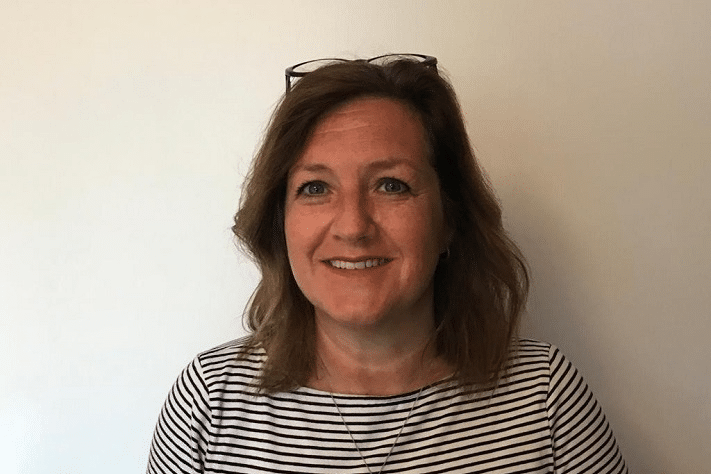
Mrs Angela Lewis , Strategic and Professional Lead for Flying Start in ABUHB
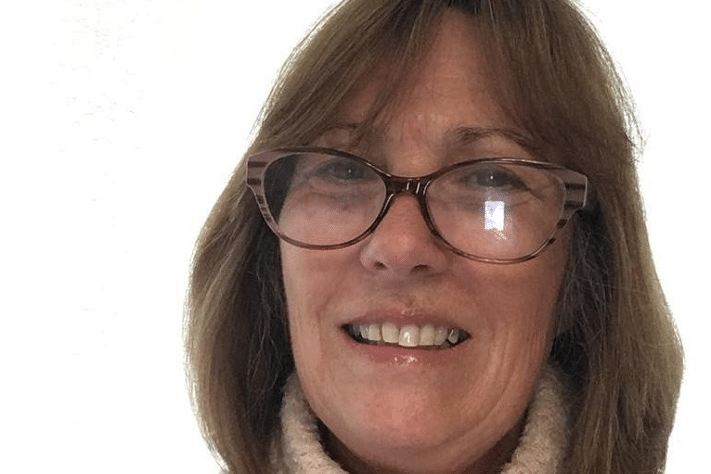
Mrs Lorraine Childs Strategic and Professional Lead for Flying Start in ABUHB
Facing redeployment, staff sickness and social distancing measures, we strived to maintain our Flying Start and generic Public Health Nursing services. We formed ‘responsive teams’ in each of the five local authority areas, followed Government advice on social distancing measures, and quickly enabled our staff to work from home — maintaining minimal daily staff numbers in each locality office. Each team is staffed by Community Nursery Nurses (CNNs) from Health and the Local Authority, with the support of senior Health Visitors who provide on-going supervision and consultation. The majority of CNN staff had already undertaken Baby Friendly Initiative (BFI) training with our Breastfeeding Advisor and further training and quick updates were provided to staff to enable responsive infant feeding support. A bespoke training package was developed by the Gwent Parent-Infant Mental Health Service (G-PIMHS) for the responsive teams. The training is delivered remotely in small groups or to individuals, or face-to-face in small groups with strict social distancing measures enforced. The training covered early signs of postnatal depression and anxiety, empathic listening and communication skills, basic anxiety management and emotion regulation strategies, and key messages on infant communication and relationship building. Leaflets were produced to support responsive team staff (e.g. understanding your baby/managing distress), and these are shared with families and can be used to structure particular tele-communication sessions (e.g. sessions focused on managing anxiety or understanding babies’ communication signals). Links to short audio-visual clips (e.g. baby massage, breastfeeding tips and anxiety management techniques) were also made available so that staff could share with parents via phone messaging. On a needs basis, supervision and consultation is provided by G-PIMHS to responsive team staff for parents displaying persistent or worsening symptoms of depression, anxiety, trauma reactions and difficulties in the parent-infant relationship.
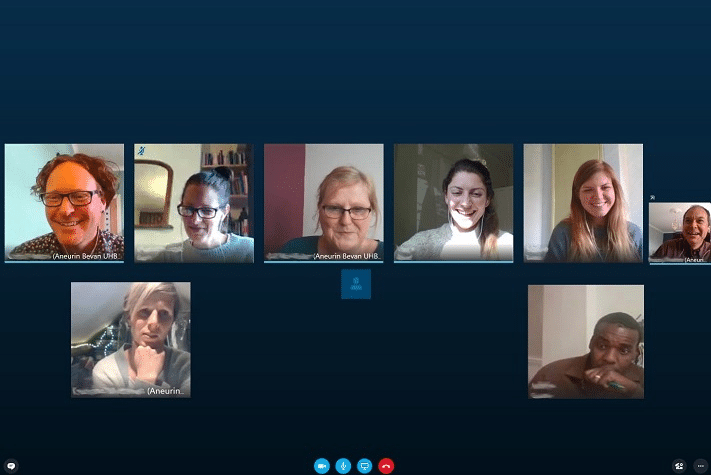
Screen shot of GPIMHS staff who delivered training over SKYPE where much of the communication has happened
As a result of the Pandemic, every new mother in ABUHB is contacted within 3 days following the birth of her baby via telephone and/or video communication. Since the COVID-19 pandemic, we have contacted over 645 new mothers and the service is Universal – being open to all mothers giving birth in ABUHB and not only those in Flying Start areas. All new mothers are offered support to help establish responsive breast/bottle feeding, making formula, and supporting positioning and attuned interactions with their infant. Practical help is also provided for those in need (e.g. delivery of infant formula, Healthy Start Vitamins and food packages). Expert training, advice and readily available consultation is provided to responsive team staff to support them in the provision of emotional support and listening visits. During the tele-communication, CNNs detect emerging physical/mental health difficulties and safeguarding concerns. These concerns are shared with the health visitor who can see the baby in Community hubs that have been established (following strict safe distancing and infection control procedures) where growth measurements can be undertaken and, where necessary, child protection medicals and other assessments (e.g. specialist mental health assessments) can be conducted for the most urgent cases. Care pathways to more specialist services have also been developed when difficulties persist (e.g. childbirth related physical health problems/persistent feeding problems/mental health concerns).
The feedback from staff and clients has been extremely positive to date. Mothers have reported to midwives and health visitors that the service is supportive, and midwives are reassured that families are having these additional contacts during the pandemic. One mother commented:
“she (CNN) first phoned me a couple weeks ago to check in on how I was doing with feeding my baby. It was so nice to hear from someone with useful tips and support & even though I couldn’t have anyone visit my home they provided me with links, images & videos to help with breastfeeding which I found useful. My sister also had a positive experience with the team…’’
Another mother with low mood fed back to the health visitor that, although she was happy with her baby, she had felt tearful when first contacted by the responsive team and overwhelmed with having a new baby during the COVID-19 restrictions. The CNN working in the responsive team has provided weekly listening visits on an on-going basis and shared some links to relevant audio-visual materials. The new mum reported finding the on-going contact really helpful and was reassured that more specialist support was available should she need it.
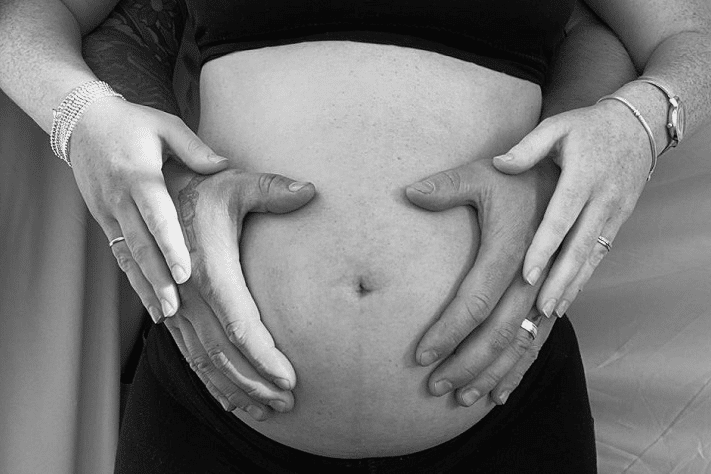
Pregnant photo of new parents in ABUHB
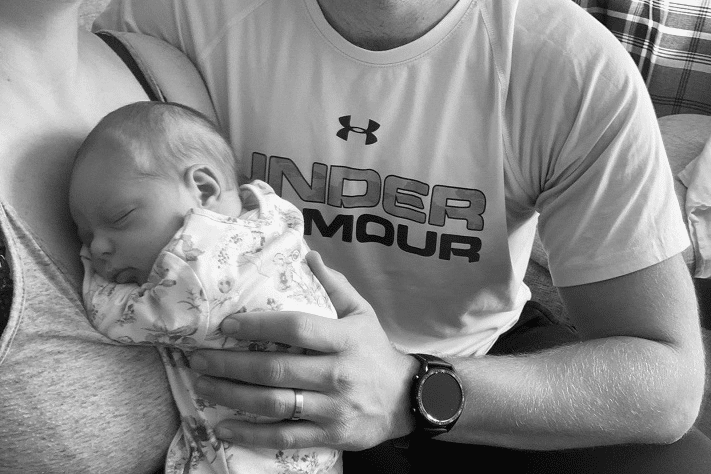
Early postnatal photo of new parents in ABUHB
The support provided by the responsive team is needs led and can be ongoing. It is a responsive service that is invaluable in these times when the usual health visiting home visits are unable to take place. Looking forward, we will continue to develop and evaluate our new services, and continue to train and support new staff as they get repatriated following the COVID-19 pandemic. Ensuring consistent cover across all five local authorities remains an area for continued improvement and brings into focus, now more than ever, the need and benefit of partnership working. Whilst we remain concerned about the potential acute and long-term adverse impact of undetected safeguarding, physical, and mental health concerns, we have already seen the benefits of our rapid adaptation and of our new ways of working. When the COVID-19 crisis is over and our services return to normality, we will strive to maintain weekly contact via telephone and/or video-communication that parents are telling us they find helpful, alongside the essential routine face to face services in order to support our most vulnerable and socially disadvantaged parents and babies in the best way possible.
Dr Cerith Waters, Angela Lewis, Lorraine Childs, Paddy Martin and James Smith from Aneurin Bevan University Health Board (ABUHB)






